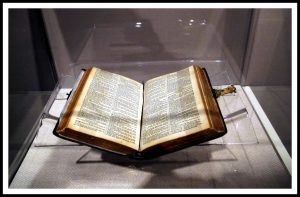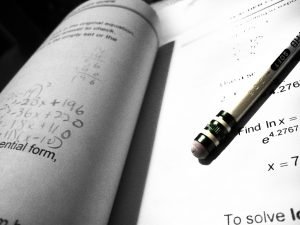Alex Joyner is the 1st place winner of Streetlight Magazine‘s 2017 Essay/Memoir contest.
Robert E. flippin’ Lee’s church pew. Is there any more compromised bench in all of Christendom? It occupies some middle ground of sacrality at St. Thomas Episcopal Church in Orange, Virginia.
I scowled as I walked past it, despite the attraction it held for me as youth. What white, Virginia boy of a certain age didn’t thrill to know that here sat (God, did we call him?…yes, we did) ‘Marse’ Lee, snowy head bowed in prayer with Traveller tied to the locust tree outside snorting mighty fog into the cold, all through the long winter of ’63-’64?

But now I was grown, full-fledged and free, unhitched from the past and educated to know better. Liberation and solidarity had formed my theological education. I had conspired with urban radicals, learned to speak in other languages, travelled widely in the world.
Yet here I was. Back in Orange as if none of it had ever happened.
It was 1992. I was newly appointed to a small United Methodist charge down the county, attending an ecumenical clergy gathering. One of the volunteers cutting crusts from the pimento cheese sandwiches for lunch emerged from the kitchen.
“Alex! I heard that you were back.”
Harriet Moore seemed unchanged. Her cropped black hair and heavy-rimmed glasses were vintage 3rd grade, which is when she had been my teacher. She took me by the shoulders, looked though thick lenses, and recited my poem from twenty years past:
“The trees are standing very still
They stand like giants on a hill.
The sun is coming up, not high,
I think it is a little shy.
The dew is sparkling on the ground.
Just look, it’s all around.
I step on a stick, I step on a stone.
It crunches like an ice cream cone.
This wondrous poem I write to you
Of sticks and trees and sun and dew.”
Harriet taught with cool precision and a warm heart. Her deep South lilt and husky voice reminded me of Carolina relatives with functional parlors and commanded attention from her squirming subjects.

She was convinced we were artists, all evidence to the contrary, and she got it down in a makeshift literary journal. Fed on E.B. White and children’s poetry, we inscribed our own work on ditto paper in glorious purple-and-white. To write, to publish, to smell the isopropanol and methanol of the spirit duplicator and to breathe it in like some incense of acknowledged existence, to see Ms. Moore invest our words with meaning and import—this was as much seduction as a 9-year-old boy could handle.
By fourth grade it was gone. Mrs. Harrison had a sour disposition and a weary bearing. I fell in with friends who put more energy into adventure and sleepovers.
Once, at a friend’s house, we were outdoors—about some game among the oaks that lined the drive. As usual, I was flat-out, full-in. As usual, I laughed and wet my brown corduroys. There was no way to cover up. I was exposed.
I ran to the house and was changing in the upstairs bathroom. The mortification and shame overwhelmed me. I tried to stifle sobs but a lone, loud whimper escaped me.
I looked to the open window. One of the boys had climbed to the roof of the front porch and was peering in through the screen, surely having heard. I was crouched, half-naked, holding my wet clothes before me. He said nothing. Later, they all said nothing.
For two years I held the power of their silence. I withdrew into myself. My joys and my passions were not for strewing in public now. I cursed the child I was who was not worthy of Ms. Moore or the settled world.
I was a bit too starched and straight. When Harriet took me by the shoulders and recited my past back to me, I was very proper and genteel in thanking her. But I should have pulled her to the floor cross-legged.
I should have fumbled out how my emerging self had tumbled forth from those scented sheets. How I should have known that I was not so opaque as I thought, my secrets were not so heavy, the cost was not so dear, and the way was not so lonesome. I could have been a glorious mess of exuberance there.
Instead, I let her pass from my grip and walked to my car. Down the lonely road that Lee had taken to meet Grant in the muddy spring of ’64. Out to the fields where they didn’t know me. To the church which threatened to consume me. To the life that was yet undetonated, though the fuse was lit. And had been since third grade.

Share this post with your friends.


Congratulations, my friend! I really appreciated your essay.
With love, Karen